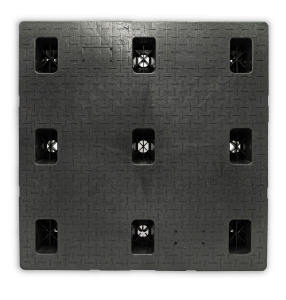
In an era marked by rising environmental consciousness, the specter of plastic waste poses one of the most formidable challenges our global community faces. Each year, humans produce approximately 300 million tons of plastic waste, a figure that starkly showcases the magnitude of the problem. This persistent environmental threat is exacerbated by single-use plastics and non-biodegradable materials that accumulate in our oceans, landfills, and natural habitats, causing extensive harm to wildlife and ecosystems.
At CTC Plastics, we recognize the pressing need to address this plastic paradox and believe in the transformative power of plastic waste upcycling—the inventive and sustainable practice of repurposing waste into products of higher value. Our commitment is unwavering: to lead by example in sustainable manufacturing, using our innovative processes to reduce the plastic footprint and pioneer a greener future for industry and the environment.
The Global Impact of Plastic Waste
The global impact of this crisis is multi-dimensional, threatening the crux of our ecological balance. Statistics from recent studies are alarming; millions of aquatic lives are lost annually due to entanglement or ingestion of plastics, and microplastics are now pervasive even in the remotest ecosystems. Traditional disposal methods such as landfills and incineration come with their own setbacks. Landfills reach capacity and leach hazardous substances into the soil and groundwater, while incineration releases toxic emissions into the air we breathe, ultimately contributing to climate change.
CTC Plastics views these daunting challenges as a call to action. Our philosophy is built on the tenet of ‘Waste to Wealth’—a vision that informs our innovative upcycling initiatives, which curb environmental threats and serve as a lucrative economic engine. By investing in advanced upcycling technology and fostering partnerships, we endeavor to exemplify how enterprises can turn the tide on plastic waste by transforming it into durable, value-added products and reducing our collective environmental footprint.
What is Upcycling, and How Does It Differ from Recycling?
Upcycling represents a paradigm shift in waste management, symbolizing a step beyond traditional recycling. While recycling often entails breaking down waste materials into their base substances to remake similar products—a process which can sometimes degrade the material integrity—upcycling repurposes waste without breaking its form into products of equal or greater utility and aesthetic value. Think of upcycling as an evolution; it’s about elevating waste material into a new, more desirable form rather than just converting it back to its original state or into a lesser product. This process not only diverts waste from landfills but also has tangible environmental benefits by minimizing the need for new raw materials and reducing air pollution, water pollution, and greenhouse gas emissions. The economic implications are also significant, as upcycling opens up new market opportunities and lowers costs associated with waste disposal and raw material procurement.
CTC Plastics’ Upcycling Initiatives
CTC Plastics is at the forefront of this movement, continuously innovating to refine our upcycling capabilities. Our signature processes involve reimagining discarded plastics into high-quality resin pellets, used as raw materials for producing industrial and consumer goods ranging from auto parts to home furnishings. Additionally, our upcycling efforts extend to producing sustainable plastic pallets, further enhancing their environmental impact and versatility. These products boast improved environmental credentials and enhanced durability and performance. Doing so elevates the plastics’ life cycle, providing them renewed purpose and longevity.
Our collaborative efforts extend to partnerships with community programs and businesses, emphasizing a synergistic approach to sustainability. Through these alliances, we’ve been able to amplify the impact of our work, contributing to both local economic growth and global ecological preservation. Our initiatives embody our ‘Waste to Wealth’ ethos, demonstrating that environmental stewardship and business innovation can go hand in hand.
Overcoming the Challenges of Upcycling
Despite the undeniable benefits of upcycling, the industry has its hurdles. One of the main obstacles is collecting and sorting plastic waste, which needs to be improved by adequate infrastructure and public participation. Additionally, the varying quality of recycled plastics can pose significant challenges to consistency and reliability in production. Another hurdle is the need for widespread consumer awareness and education regarding the benefits of upcycled products, which can impact market demand and acceptance. Moreover, manufacturers face the challenge of ensuring that upcycled products meet high standards of performance and safety, which requires ongoing innovation and quality control. Regulatory complexities and economic barriers, such as cost competition with virgin plastics, deter upcycling on a larger scale.
CTC Plastics has strategically positioned itself to overcome these challenges through technological innovation, educational initiatives, and strategic partnerships. By leveraging our state-of-the-art sorting and processing systems, we ensure a consistent supply of high-grade resin pellets, optimizing the integrity and functionality of the upcycled plastics we produce. Our outreach programs aim to empower consumers with knowledge about our upcycled goods’ environmental and quality advantages, fostering a more receptive marketplace. We are also continually engaging with stakeholders to advocate for more supportive policies and financial incentives that can bridge the competitive gap between virgin and upcycled plastics.

